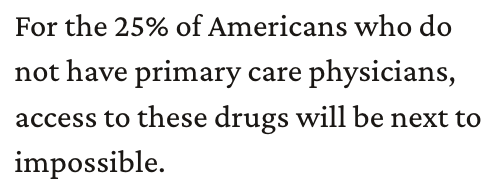The FDA just made it easier for people who have Covid to get their hands on Pfizer's antiviral drug Paxlovid, the standard of care for treating the infection.
Today, the U.S. Food and Drug Administration revised the Emergency Use Authorization (EUA) for Paxlovid (nirmatrelvir and ritonavir), to authorize state-licensed pharmacists to prescribe Paxlovid to eligible patients, with certain limitations to ensure appropriate patient assessment and prescribing of Paxlovid.
FDA Press Release, July 6, 2022
Bragging is considered to be in poor taste. Yet, please forgive Dr. Jeffrey Singer (Cato Institute and ACSH advisor) and me for a mini-brag. In a January 2022 op-ed in The New York Daily News, Dr. Singer and I argued that unnecessary restrictions on the use of Paxlovid were making it too difficult for patients to obtain the drug in a timely manner. (If you run into a paywall, the piece can be read in full on the Cato Institute's website.)
Dr. Singer's most recent blog post, "FDA Wisely Permits Pharmacists to Prescribe Paxlovid," notes:
When the Food and Drug Administration granted Emergency Use Authorization to the antiviral drugs Paxlovid and monupiravir in the beginning of this year, I co‐authored an oped in the New York Daily News, along with Josh Bloom of the American Council on Science and Health, complaining about, among other things, the FDA’s requirement that a patient who tests positive for COVID must get a prescription from a doctor, nurse practitioner, or physician assistant to obtain the drug. For the drugs to be effective they must be started within five days of the start of COVID symptoms. Not everyone has ready access—or the time—to get in to a busy medical office to get a prescription.
Timely availability is critical here because, as with other antiviral drugs, sooner is better. Nowhere is this truer than with Paxlovid; to be effective, the drug must be taken within five days, sooner being better.

Singer and Bloom, New York Daily News, January 13, 2022
More recently, I wrote in favor of a then-controversial plan allowing pharmacists to prescribe the drug (under certain conditions) (See Biden's 'Test To Treat' COVID Program Is The Right Medicine). Controversial is not an exaggeration; Both Dr. Chuck Dinerstein, ACSH's beloved zen master, and my frequent writing partner Dr. Henry Miller disagreed (in the Wall Street Journal, no less). See Test And Treat: Another Thought and Biden’s Half-Baked Covid Treatment Plan. (The AMA also threw cold water on "Test to Treat "in a March press release.)
None of us is entirely right or wrong; there are significant drug-drug interactions that are caused by one of the two drugs that make up Paxlovid. While in some cases, this problem can be addressed by simply stopping a statin during Paxlovid therapy, other drugs, for example, antiarrhythmics and blood thinners, often cannot be discontinued, and the dangerous effect of Paxlovid on the levels of these drugs cannot be ignored. Like most medical decisions, it came down to perceived risk and benefit. The FDA decided that the benefit of fast access outweighed the risk, although the agency's decision required certain criteria to be met, including [my emphasis]:
A list of all medications they are taking, including over-the-counter medications so the state-licensed pharmacist can screen for drugs with potentially serious interactions with Paxlovid.
Good news, bad news, worse news
Of course, six months ago, BA.5, the Omicron subvariant, which is now taking over as the dominant virus in many corners of the world, was barely known. The enhanced ability of BA.5 to break through both vaccine-and acquired immunity, and its (just what we need) enhanced infectiousness makes the availability of Paxlovid more important since the drug's mode of action makes it equally effective in inhibiting viral replication regardless of the variant. The good news is that we can get the drug faster. The bad news is that more of us will probably need it (1). The worst possible news is that eventually, Covid will figure out how to mutate so that it becomes resistant to nirmatrelvir, the antiviral component of Paxlovid. I'll be writing about this ghoulish possibility soon.
NOTE:
(1) This still doesn't mean that people will take it. See COVID Drugs Now Available, But Not Being Used. Why?




